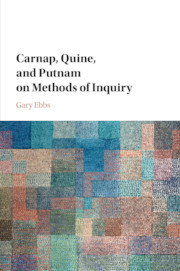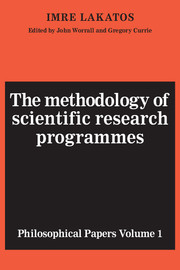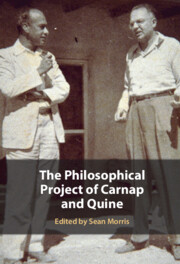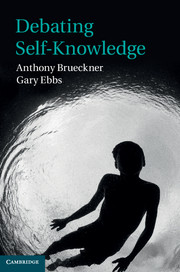Carnap, Quine, and Putnam on Methods of Inquiry
Carnap, Quine, and Putnam held that in our pursuit of truth we can do no better than to start in the middle, relying on already-established beliefs and inferences and applying our best methods for re-evaluating particular beliefs and inferences and arriving at new ones. In this collection of essays, Gary Ebbs interprets these thinkers' methodological views in the light of their own philosophical commitments, and in the process refutes some widespread misunderstandings of their views, reveals the real strengths of their arguments, and exposes a number of problems that they face. To solve these problems, in many of the essays Ebbs also develops new philosophical approaches, including new theories of logical truth, language use, reference and truth, truth by convention, realism, trans-theoretical terms, agreement and disagreement, radical belief revision, and contextually a priori statements. His essays will be valuable for a wide range of readers in analytic philosophy.
- Presents new interpretations of central views in the history of analytic philosophy in the mid- to late-twentieth century, including Carnap's, Quine's, and Putnam's views of the analytic-synthetic distinction, and compares and evaluates these views
- Reveals the real strengths of Carnap's, Quine's, and Putnam's arguments while debunking widespread misinterpretations of their work
- Addresses central methodological questions from multiple overlapping, but different, perspectives, yielding a new and deeper understanding of the issues, and opening up new avenues of thinking about them
Reviews & endorsements
'Ebbs' volume … is an important publication from both an historical and a systematic point of view. It offers a new perspective on the relation between Carnap, Quine, and Putnam, as well as a substantive contribution to ongoing systematic debates about truth, justification, and language use. As such, it will be of interest and value not only to historians of analytic philosophy, but also to all philosophers who believe that Carnap's, Quine's, and Putnam's most fundamental insights deserve continuous discussion and adaptation.' Notre Dame Philosophical Reviews
Product details
No date availableHardback
9781107178151
288 pages
235 × 157 × 20 mm
0.54kg
Table of Contents
- Part I. Carnap:
- 1. Carnap's logical syntax
- 2. Carnap on ontology
- Part II. Carnap and Quine:
- 3. Carnap and Quine on truth by convention
- 4. Quine's naturalistic explication of Carnap's logic of science
- Part III. Quine:
- 5. Quine gets the last word
- 6. Reading Quine's claim that definitional abbreviations create synonymies
- 7. Can logical truth be defined in purely extensional terms?
- 8. Reading Quine's claim that no statement is immune to revision
- Part IV. Quine and Putnam:
- 9. Conditionalization and conceptual change: Chalmers in defense of a dogma
- 10. Truth and trans-theoretical terms
- Part V. Putnam:
- 11. Putnam and the contextually apriori.







